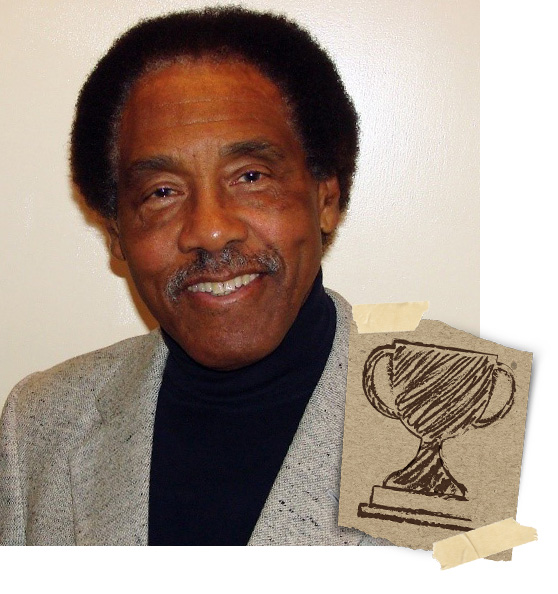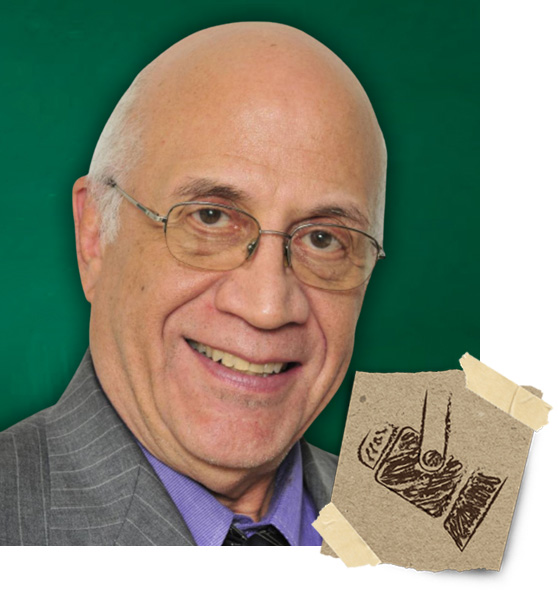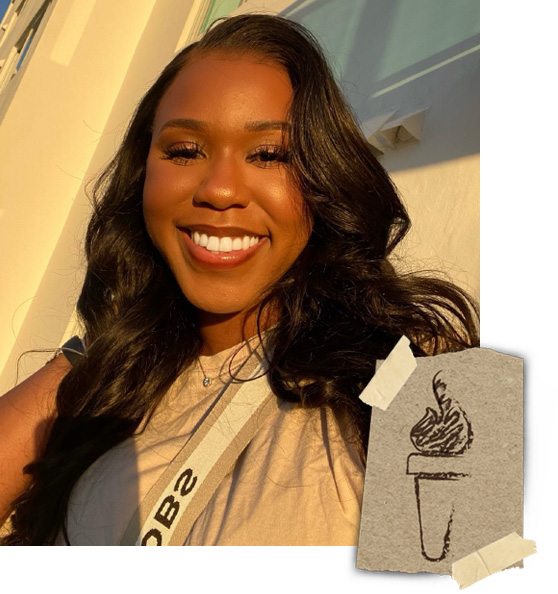Diversity Champion: Dr. Joe Darden
February 15, 2021 - Liz Schondelmayer
 Dr. Joe Darden has been a beloved and integral member of MSU's faculty for over 40 years. A professor in the Department of Geography, Environment and Spatial Sciences, Dr. Darden has authored 8 books, won countless awards and earned international recognition for his work as a geographer. These awards include the MSU Distinguished Faculty Award (1984), Fulbright Scholar Award (1997), and American Association of Geographers (AAG) Lifetime Achievement Award (2019) - to name just a few. He also fought for a policy to admit and support more underrepresented graduate students of color within the Geography department, which was passed in 2018. Reflecting on his career, Dr. Darden said, "First of all, I’d like to say that my career has been enhanced by the fact that Michigan State University is, and has been, a very good place to work."
Dr. Joe Darden has been a beloved and integral member of MSU's faculty for over 40 years. A professor in the Department of Geography, Environment and Spatial Sciences, Dr. Darden has authored 8 books, won countless awards and earned international recognition for his work as a geographer. These awards include the MSU Distinguished Faculty Award (1984), Fulbright Scholar Award (1997), and American Association of Geographers (AAG) Lifetime Achievement Award (2019) - to name just a few. He also fought for a policy to admit and support more underrepresented graduate students of color within the Geography department, which was passed in 2018. Reflecting on his career, Dr. Darden said, "First of all, I’d like to say that my career has been enhanced by the fact that Michigan State University is, and has been, a very good place to work."
Dr. Darden's research focuses on the impact, causes, and solutions for racial residential segregation. Below, he explains the goals and outcomes of his research in his own words.
Over my career, my research interests have focused on racial residential segregation, socioeconomic neighborhood inequality due to residential segregation, the social and economic consequences of residential segregation, and the policies and actions necessary to reduce it. Specifically, I have focused on the extent of racial residential segregation of the white majority from each of the following racial minorities: African-Americans, Latinx/Hispanics, Asian Americans, and Native Americans. Following my examination of the trends in residential segregation, I focused on the motivation of the white majority for maintaining it. My goal in this research has been to analyze and document the extent of this inequality and provide policy and other solutions to ameliorate, and hopefully eliminate, such inequality. A key question I examined was whether the white majority was motivated to separate themselves from the racial minorities because of class differences or racial differences.
My research has shown that race matters more than class in explaining the motivation of the white majority to spatially separate itself from racial minorities. I believe that residential segregation by race can best be explained by examining the ideologies of the white majority, namely white supremacy vs. democracy. My research has shown that the white majority continues to restrict the spatial ability of nonwhites, resulting in outcomes that are separate and unequal. The existing separate and unequal living arrangements are an indication that the ideology of white supremacy is stronger than the ideology of democracy among the majority of the white population.
This segregation has had a devastating impact on many people and communities of color. Dr. Darden breaks down why this practice is so harmful, and how allies can fight against these discriminatory practices.
The separate and unequal neighborhoods where minorities in the US have been forced to reside produce wide-ranging and ongoing negative effects on those residents. These neighborhoods, where 40 percent or more of the population is poor, are what my former professor, William J. Wilson, called “concentrated poverty neighborhoods” (The Truly Disadvantaged, 1987). Some of the resulting “neighborhood effects,” documented over decades, include: less access to jobs, very high unemployment; very high poverty rates; low quality public schools; low quality housing; less access to grocery stores; and a greater exposure to crime. These are the same neighborhood characteristics and effects that I have documented in my own research.
These harmful effects are best minimized by removing structural barriers to the residents’ ability to move to alternative neighborhoods, i.e., those with different social and economic characteristics. There is research associated with what is called the “geography of opportunity” that demonstrates that this idea works.
In addition, in order for these harmful effects to be minimized, whites who believe in the ideology of democracy and who are willing to implement it in practice must (a) join those groups that are organizing to insure that voter suppression is opposed in practice and in policy; (b) not support real estate brokers, apartment managers, homebuilders, and mortgage lending institutions that discriminate based on race and practice; (c) support policies that are designed to remove barriers that restrict the movement of families from very low socioeconomic neighborhoods to neighborhoods that provide more opportunities for social mobility; and (d) support policymakers who believe in democracy, instead of policymakers who believe in white supremacy.
Lastly, in honor of Black History Month, Dr. Darden shares what he believes everyone should understand about the intersection of Black history and American history.
During Black History Month 2021, there are a few remarks that I would like to make. One, Black history is American history. Without it, there is a greater likelihood that American history would be incomplete and distorted. I started my discussion by indicating that America has two ideologies—one is the ideology of democracy, and the other is the ideology of white supremacy. American history is usually taught with an emphasis almost totally on the ideology of democracy. Very little, if any, knowledge is provided about the ideology of white supremacy and its consequences for really understanding who Americans are, as a people.
As has been shown more clearly in recent months, white supremacy—as an ideology—is as “American as apple pie.” Black history will provide a counterbalance to the mainstream narrative and better inform all Americans about this country’s history of slavery (and genocide), the slave-owning founding fathers’ residential segregation by law, lynching and other forms of violence, employment discrimination, and housing and school segregation. Importantly, all Americans need to understand the negative impact of these past injustices on African Americans today. Black history can teach white Americans that the quote, “equal justice for all,” has always been a myth. Finally, since Black history is American history, it needs to be taught year-round.
Read more:

Diversity Spotlight
Alumni
Dr. Philip S. Hart
Dr. Philip S. Hart is a MSU Social Science Alumnus, businessman, filmmaker, author, lifetime public servant and educator. His book Flying Free: America’s First Black Aviators inspired the History Channel production of the same name.

Diversity Torch
Student
Wisdom Henry
Wisdom Henry is a fourth-year MSU undergraduate student majoring in Urban Planning and Pre-Law who researches the racial gerrymandering of electoral districts.

Diversity Matters
We strive to cultivate an inclusive and welcoming college environment that celebrates a diversity of people, ideas, and perspectives.

